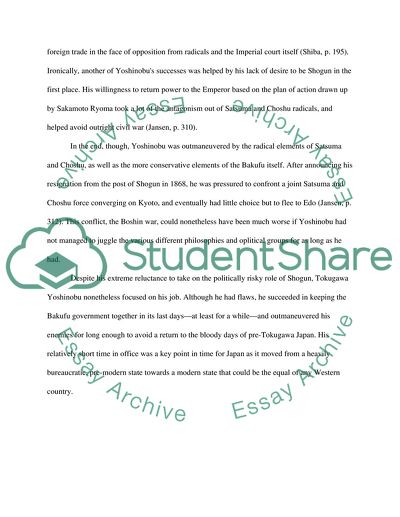Tokugawa Yoshinobu and the end of the Bakufu Essay. Retrieved from https://studentshare.org/history/1702467-tokugawa-yoshinobu-and-the-end-of-the-bakufu
Tokugawa Yoshinobu and the End of the Bakufu Essay. https://studentshare.org/history/1702467-tokugawa-yoshinobu-and-the-end-of-the-bakufu.


